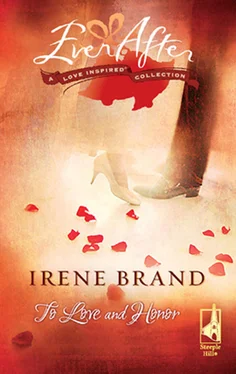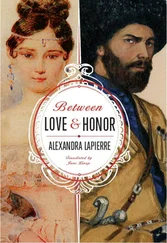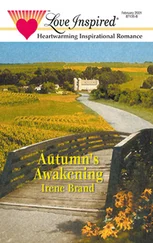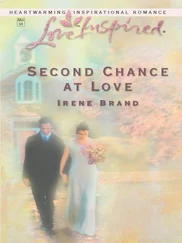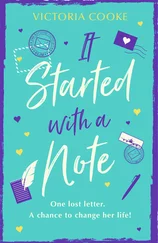“Roger, why haven’t you ever remarried?”
Violet asked as she gazed into the fire.
“Are you proposing to me?” A mischievous twinkle sparkled in his dark eyes.
“Of course not,” she said. “I’m just…curious. Don’t you miss sharing your life with someone?”
“At first the pain was too deep to even consider it. But lately, I have been thinking about marrying again,” he admitted.
Roger stood and stoked the fire. “Now it’s my turn to ask questions—are you going to marry Larry Holland?”
His question startled her, but she smiled. “He hasn’t asked me.”
“But if he does, will you marry him?” Roger continued to look at her, his gaze intense.
Violet looked away. She stared into the flames.
“I’ve often asked myself the same question. Right now, I honestly don’t know….”
Writing has been a lifelong interest of this author, who says that she started her first novel when she was eleven years old and hasn’t finished it yet. However, since 1984 she’s published thirty-two contemporary and historical novels and three nonfiction titles. She started writing professionally in 1977 after she completed her master’s degree in history at Marshall University. Irene taught in secondary public schools for twenty-three years, but retired in 1989 to devote herself to writing.
Consistent involvement in the activities of her local church has been a source of inspiration for Irene’s work. Traveling with her husband, Rod, to all fifty states, and to thirty-two foreign countries has also inspired her writing. Irene is grateful to the many readers who have written to say that her inspiring stories and compelling portrayals of characters with strong faith have made a positive impression on their lives.
To Love and Honor
Irene Brand

www.millsandboon.co.uk
Before you start reading, why not sign up?
Thank you for downloading this Mills & Boon book. If you want to hear about exclusive discounts, special offers and competitions, sign up to our email newsletter today!
SIGN ME UP!
Or simply visit
signup.millsandboon.co.uk
Mills & Boon emails are completely free to receive and you can unsubscribe at any time via the link in any email we send you.
For I was hungry and You gave me something to eat, I was thirsty and You gave me something to drink, I was a stranger and You invited me in, I needed clothes and You clothed me, I was sick and You looked after me, I was in prison and You came to visit me.
—Matthew 25:35–36
Dear Reader,
Frequently I’m asked, “How long does it take you to write a book?” That’s a difficult question to answer, for the time needed to write a book varies with each story.
Probably the best answer would be, “It takes a lifetime to write a book,” for whatever a writer produces, either fiction or nonfiction, is a composite of the author’s life up to that point. While I have never considered any of my writing as autobiographical, I do rely heavily upon information I’ve accumulated during years of varied experiences. The ideas for most of my historicals germinated when I was studying and researching for my master’s degree in history, or when I was teaching the subject to ninth graders. I was inspired to write my books on early church history while touring Switzerland, Germany and Holland in 1992.
And my interest in writing for the inspirational market has been a result of my religious training from early childhood. Prayer, Bible study and church involvement have been my normal routine for most of my life. Although I’ve experimented with secular writing, I’ve had little success, perhaps because God was directing me toward a more fulfilling ministry—inspirational fiction.
It’s still an awesome experience when I see a new book in print. I often express my gratitude in the words of David: “Who am I, O Sovereign Lord, and what is my family, that you have brought me this far?” (II Samuel 7:18)
I pray that you will be uplifted spiritually by reading this book. May God bless you.

Chapter One
Chapter Two
Chapter Three
Chapter Four
Chapter Five
Chapter Six
Chapter Seven
Chapter Eight
Chapter Nine
Chapter Ten
Chapter Eleven
Chapter Twelve
As the closing school bell rang, Violet Conley dropped into her teacher’s chair with a deep sigh. Would she ever sponsor another Social Studies Fair? She closed her eyes for a few minutes, and then opened them slowly. Did the room really look as bad as she had thought?
Afraid so! Violet conceded grimly, as she pushed herself upward. She had permitted the students to work too late in their frenzy to be ready by the weekend, and they hadn’t had time to clean up the classroom before catching their buses. All of them were gone except Janie Skeen, who was shelving books. Janie lived two blocks from the school, so she often stayed behind to help Violet. The girl’s slender body already exhibited lovely curves and grace, and except for the melancholy look in her deep brown, long-lashed eyes, she would have been beautiful.
Violet was pleased to have Janie’s help, for the whole room was in disarray, due to the past several days of research. While valuable to the pupils, it had been hard on a teacher’s nerves.
“You’re probably glad that tomorrow is the last day to work on projects,” Janie said with a slight smile.
“Right now, that’s true,” Violet agreed as she carried the waste bin from desk to desk picking up litter.
“But when the projects are all arranged, and I see the culminated effort of our whole school, I forget about the frustration and hard work.” She shook her head in exasperation as she picked up a book that a student had left behind, for it was a book on the rules of football, which he undoubtedly was reading when he should have been working on his class assignment. She locked the book in her desk. She would discover, and admonish, the culprit when he came looking for his book.
“You say your project is coming along well?”
“Yes, I think so,” Janie said timidly, “but I don’t suppose I’ll be a winner.”
“You’ll have as much chance as anyone.” When Janie still looked skeptical, Violet added, “The judges are from out of town, so names won’t mean anything to them.”
No need to pretend that she didn’t know the reason behind Janie’s skepticism. Janie had enrolled in Maitland High at the beginning of the school year, but she hadn’t been accepted by her peers. The teachers liked Janie, because she was well behaved and eager to learn, but most of the students ignored her…some because they feared her, others considered she was inferior to themselves, while the majority of pupils didn’t know how to befriend a runaway girl who had lived on the streets of Chicago for six months, before she was placed in a foster home in Maitland, their small town in southern Illinois.
Moving into the computer room, Violet found it in better shape than the classroom. The students had found the Internet indispensable in researching their projects, and Violet was happy that the principal, Larry Holland, had secured a federal grant to provide the equipment. Violet sat at one computer and typed in a password to check her E-mail. “Receiving one message of one,” she read, hoping that the communication wouldn’t require any further work on her part today.
Читать дальше
